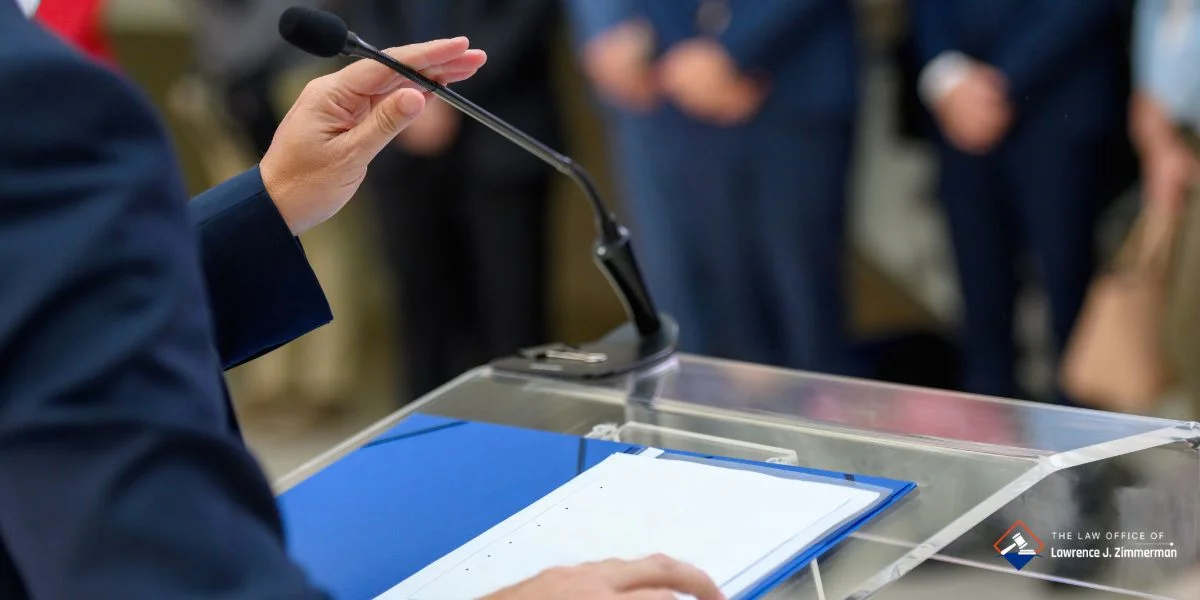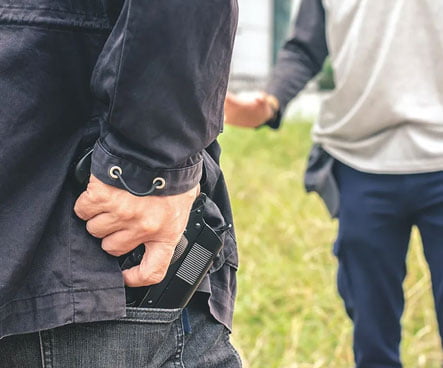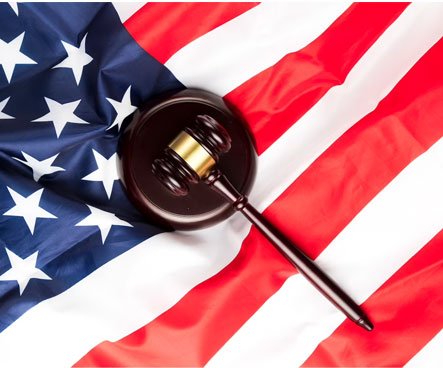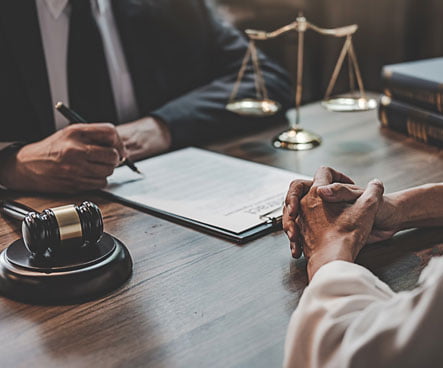Atlanta Obstruction of Justice Lawyer

Atlanta Obstruction of Justice Attorney
Obstruction of justice charges can have serious consequences that impact not only an individual’s legal standing but also their personal and professional life. These charges can happen from a variety of situations and actions that are viewed as interfering with legal processes. An Atlanta obstruction of justice lawyer from The Law Office of Lawrence J. Zimmerman can help you navigate this challenging legal system.
Common Types of Obstruction of Justice
Obstruction of justice covers a wide range of actions and behaviors that are considered to interfere with the legal process in some way. Below are common types of obstruction of justice charges:
- Witness tampering. Witness tampering happens when someone attempts to influence, coerce, or intimidate a witness into adjusting their testimony in the courtroom or refraining from testifying altogether. This can include actions like threats, bribery, or intimidation.
- Destruction of evidence. This charge involves intentionally destroying, concealing, or altering evidence that may be considered relevant and vital in an investigation or legal proceeding. Examples may include deleting files, shredding documents, or disposing of physical evidence.
- Resisting arrest. Consciously obstructing or resisting law enforcement officers during an arrest can be seen as obstruction of justice. This can include running away from officers, physical resistance, or providing a false identity to avoid arrest.
- False statements to the authorities. It may be viewed as an obstruction of justice to give false information or misleading statements to law enforcement. This can look like lying during an investigation or using false documentation.
- Contempt of court. If individuals disobey or show disrespect to a court order or authority, they may be charged with obstruction of justice. This can happen when individuals fail to appear in court for hearings or violate a judge’s order.
- Interference with law enforcement. Actions that negatively impact or obstruct law enforcement officials as they are working can result in charges. Interference can look like physically blocking officers or interfering with their investigation.
It is vital to understand these common types of obstruction of justice as it is essential in understanding the severity of facing charges and the potential consequences of those charges.
Common Defenses For Obstruction of Justice
There are defense strategies available that may be effective when facing obstruction of justice charges, depending on the unique circumstances of each individual case, including:
- Lack of intent. One key element of an obstruction of justice case is to prove that the defendant acted with the intent to obstruct official operations. If the defense can show that the accused did not have the intent or goal to interfere with the legal process, it can weaken and hurt the prosecution’s case.An example of lack of intent looks like if actions were taken accidentally or without knowing there was an ongoing investigation, it may be a strong defense to employ because you did not have intentions to impact the investigation.
- Insufficient evidence. The prosecution in these cases has the burden of proof, meaning they have to show beyond a shadow of a doubt that you did, in fact, intentionally interrupt official operations and investigations, and if the evidence presented is weak, circumstantial, or insufficient, the defense can argue for a dismissal of the charges.
- Mistake of fact. If the defendant can show that they acted based on a misunderstanding or incorrect belief about the situation, they may be able to create a valid defense. If an individual genuinely believed that they were not obstructing a lawful investigation, they may be able to disprove the intent that is required for a successful obstruction case.
- Constitutional violations. In some cases, a defendant may be able to prove that their constitutional rights were violated during the investigation or arrest. This can happen due to unlawful search and seizure, lack of probable cause, or coercive interrogation tactics.
- Lack of materiality. The defense can argue that the alleged obstructive behavior did not materially affect the investigation or legal proceeding. If this can be proven, it can undermine the obstruction charges.
- Duress or coercion. If the defendant in any way was forced or threatened to commit acts of obstruction, they may be able to argue that they acted under duress and had no other option but to comply with the unlawful demands.
FAQs
How Can You Beat an Obstruction of Justice Charge in Georgia?
To beat an obstruction of justice charge in Georgia requires that a defendant disprove the essential elements of the charge. Common defenses include lack of intent, mistake of fact, or acting on incorrect information, self-defense, defense of others, lack of evidence, and if authorities acted outside of legal bounds and violated constitutional rights.
What Is the Penalty for Obstruction of Justice in Georgia?
The penalty for obstruction of justice in Georgia can depend on the unique case as it may be classified as either a misdemeanor or felony, which have varying penalties. A misdemeanor or felony can lead to varying levels of jail time, fines, and probation. The severity of the penalty can also be impacted by aggravating factors such as the defendant’s criminal history and the impact of an obstruction on ongoing investigations.
What Is Federal Criminal Obstruction of Justice?
Federal criminal obstruction of justice refers to the offenses that are defined by federal law involved in interfering with the administration of justice which is outlined in Title 18 of the United States Code. For most obstruction charges, the prosecution has to prove that the defendant acted with corrupt intent and, in general, must relate to a matter that is crucial in an official investigation or proceeding.
Is It Helpful to Work With an Obstruction of Justice Lawyer?
Yes, it can be extremely helpful to work with an obstruction of justice lawyer if you are facing charges in Atlanta, GA. Lawyers understand the legal complexities around obstruction of justice laws and can help you understand the specific charges that are against you, along with the potential consequences. They can work to build a strong defense strategy and identify any weaknesses or inconsistencies in the prosecution case to advocate for you during the process.
Speak With a Trusted Obstruction of Justice Lawyer as Soon as Possible
It is important to work with an experienced obstruction of justice lawyer as they can help to protect your rights and ensure a fair and just trial. An attorney can offer their experience and legal understanding to guide you during the process, share potential penalties, and develop solid strategies for your defense. Set up an initial consultation with The Law Office of Lawrence J. Zimmerman as soon as possible to secure the help that you deserve.
Office Location
Meet With A Lawyer
Schedule A Consultation
Fields Marked With An “*” Are Required









